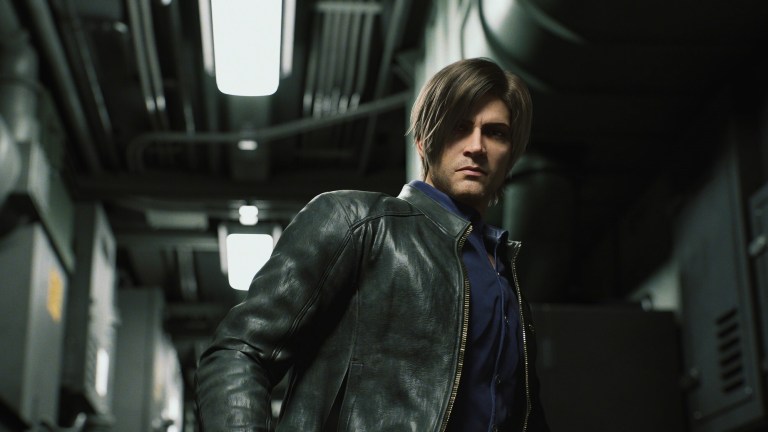Is Resident Evil: Infinite Darkness Canon?
Resident Evil: Infinite Darkness stars two of the franchise's most beloved characters, but is this Netflix series an official part of the canon?

Netflix’s Resident Evil: Infinite Darkness isn’t exactly the greatest Resident Evil adventure out there (or even the best thing related to Resident Evil that’s been released this year), but some fans are wondering if they should work their way through this uneven series simply to better understand the franchise canon.
You may think the answer to that question is “Yes, of course they should,” but things are rarely that simple when it comes to Resident Evil adaptations and their relationship to the games. Just look at the Milla Jovovich-led Resident Evil movies. They may have used the Resident Evil name, but they’re about as far removed from the franchise canon as you can get without simply starting a new series
To be fair, even the Resident Evil games have sometimes struggled to keep the canon straight. As the series’ mythology becomes increasingly complicated, only dedicated fans seem to be able to keep track of where we are in the RE timeline and how all the various Resident Evil stories are related to each other. While it’s sometimes easy to avoid that complex mythology and just enjoy the games, the ending of Resident Evil Village suggests that the next major Resident Evil game is going to dive even deeper into the canon and explore some of the more obscure elements of this franchise’s mythology.
So is Resident Evil: Infinite Darkness an official part of that ever-expanding mythology? Well, according to Netflix, it is:
While that 2020 tweet seemingly made it clear that Resident Evil: Infinite Darkness is a card-carrying member of the RE canon, some fans had questions about the “set in the canon” part of Netflix’s statement. After all, why not just say “canonical?” Was Netflix bracing us for a story simply set in the universe of Resident Evil games rather than a story that cleanly connects the franchise events that came before to those that happen after?
Well, as we previously discussed, Resident Evil: Infinite Darkness takes place about 2 years after the events of Resident Evil 4. It essentially tells us more about what happened to Leon and Claire’s relationship following the events of Resident Evil 2 and why they’re up to some of the things they’re up to in the later games in the Resident Evil franchise.
So far as that goes, Infinite Darkness should absolutely be considered part of the Resident Evil canon as the events of the series do not seem to contradict any parts of the canonical RE story that happen before or after it. In fact, Infinite Darkness clearly references certain major events in the Resident Evil timeline in ways that are obviously meant to enhance our understanding of the games. However, you shouldn’t expect this series to become a vital building block for the rest of the franchise or even answer every question you have about the largely uncharted area of the Resident Evil timeline it is set in.
Without getting too deep into spoilers, let’s just say that Infinite Darkness does help answer a couple of questions people had about Leon and Claire’s relationship (as well as show certain world-building pieces that Resident Evil 4 and 5 really only hinted at), but given how much has happened in the Resident Evil universe since the events of this series, it’s not exactly an essential experience for those who just want to understand the broad strokes of what’s happening in recent (and future) Resident Evil games.
So yes, Infinite Darkness is part of the Resident Evil canon, but it’s ultimately more of a side story meant for fans who really want to see every event in the RE timeline rather than something that is going to change how we look at the RE universe.
